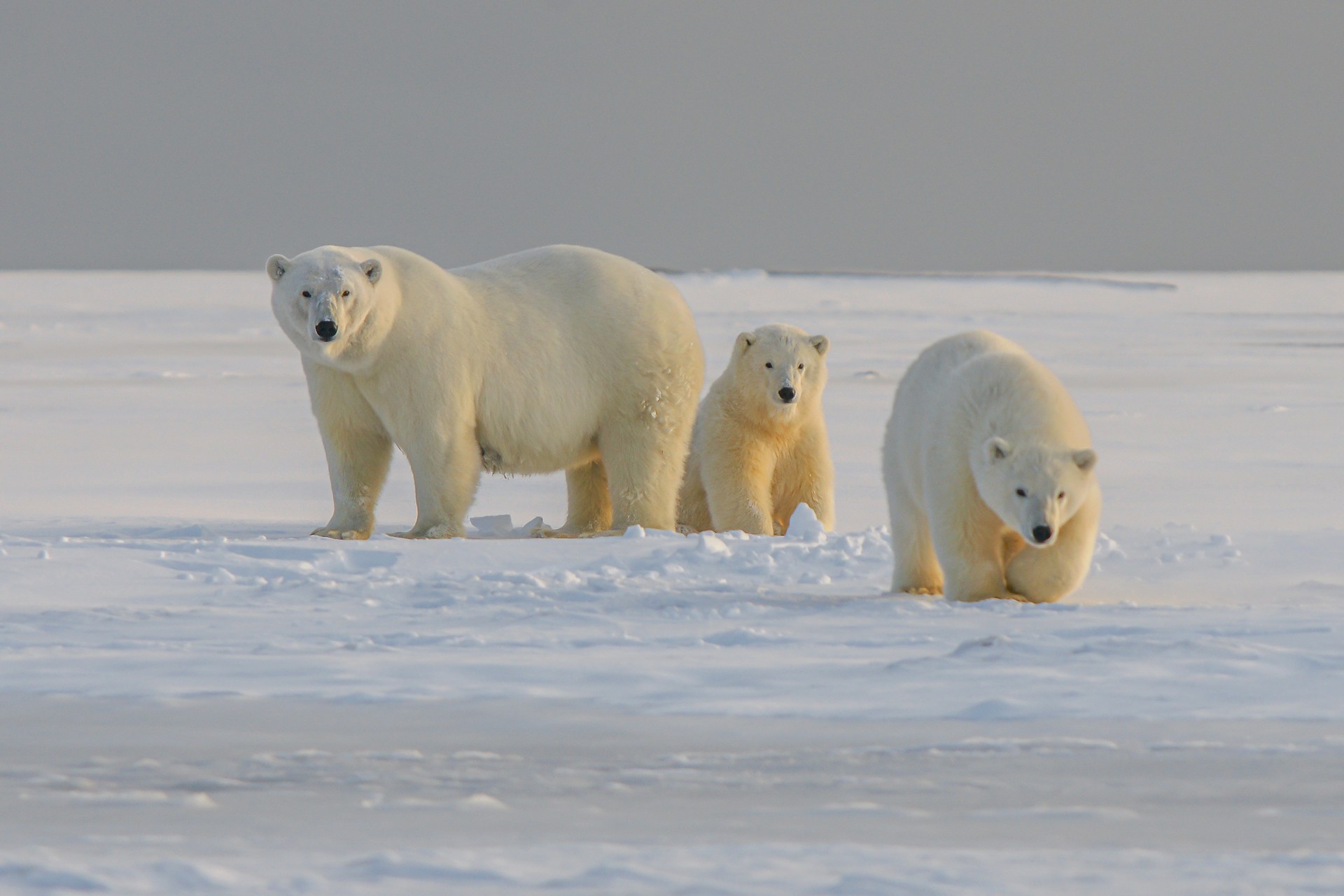Polar bears are having a hard time finding food as the Arctic ice melts. They usually hunt for seals on the ice, but as the ice disappears, they have to spend more time on land. On land, they struggle to find enough food like eggs, berries, and grass. This leads to weight loss and increased risk of starvation for these animals. Polar bears are not able to adapt to living on land like other bears.

News Reading in Levels
Polar bears are in trouble because the ice in the Arctic is melting. They usually catch seals on the ice to eat. But now, there is less ice, so they have to stay on land for longer. On land, they try to eat things like eggs, berries, and grass. However, this food is not enough for them. They lose a lot of weight on land. This means they may starve to death. Polar bears are not like other bears that can live on land. They are used to hunting seals on the ice. The melting ice is a big problem for polar bears.
Trouble: A difficult or dangerous situation.
Catch: To capture or hunt an animal.
Enough: As much as is needed.
Starve: To suffer or die from lack of food.
Used to: Accustomed or habituated to something.
A recent study has revealed the severe impact of melting Arctic sea ice on polar bears. As the ice-free periods in the Arctic extend due to global warming, polar bears are forced to spend more time on land, where they struggle to find sufficient sustenance. The study followed 20 polar bears over a three-year period, equipping them with GPS-equipped video camera collars to track their movements and activities.
The findings were concerning. Regardless of whether the bears conserved energy by resting or attempted to forage for vegetation or berries, 19 out of the 20 bears lost significant body mass, with some losing up to 11% of their weight. On average, they lost one kilogram per day while on land. Even when some bears swam in search of food, they were too exhausted to properly consume any carcasses they found.
The researchers emphasized that polar bears are not adapted to a land-based lifestyle like grizzly bears. Their ability to survive is intrinsically tied to the Arctic sea ice, where they can effectively hunt their primary prey, ringed seals. As climate change continues to diminish the Arctic ice, the future of polar bears remains uncertain without significant adaptation or intervention.
Sustenance: Food and nourishment.
Forage: To search for food.
Carcasses: The dead bodies of animals.
Intrinsically: By its very nature or essence.
Intervention: Action taken to improve a situation.
A recent study has shed light on the dire consequences of Arctic sea ice loss for polar bears, highlighting their inability to adapt to a land-based existence. Researchers from the US Geological Survey and Washington State University Bear Center conducted a comprehensive investigation, tracking the movements and activities of 20 polar bears over a three-year period using GPS-equipped video camera collars.
The findings paint a grim picture. As the Arctic ice-free periods extend due to global warming, polar bears are forced to spend prolonged periods on land, where they struggle to find adequate sustenance. Regardless of whether the bears adopted energy conservation strategies or actively foraged for vegetation and berries, 19 out of the 20 bears experienced significant weight loss, with some losing up to 11% of their body mass, averaging a staggering one kilogram per day.
Even when bears attempted to swim in search of food sources, they were often too exhausted to effectively consume any carcasses they encountered. The researchers emphasize that polar bears are not physiologically adapted to a terrestrial lifestyle like their grizzly bear counterparts. Their survival is inextricably linked to the Arctic sea ice, which serves as a hunting platform for their primary prey, ringed seals.
As climate change continues to diminish the Arctic ice, the study raises grave concerns about the future viability of polar bear populations without significant adaptive measures or interventions to mitigate the impact of their rapidly changing environment.
Dire: Extremely serious or grave.
Comprehensive: Thorough and complete.
Grim: Very serious or somber.
Terrestrial: Related to land or the Earth’s surface.
Viability: The ability to survive or continue existing.
Let’s check your understanding about the news!
The Bottom Line
The situation for polar bears is very concerning. As the Arctic ice melts, they cannot find enough food on land, leading to starvation. Polar bears are not able to adapt to living on land like other bears. Without the ice, they cannot hunt their main food source, seals. Urgent action is needed to address climate change and protect the Arctic ice. Otherwise, polar bears may face extinction in the future due to lack of food.
